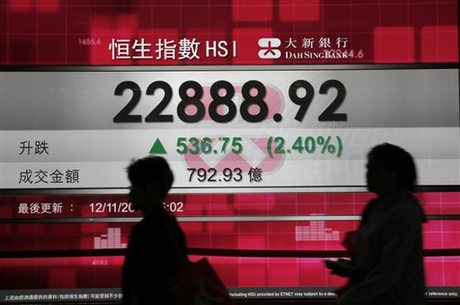Oil Prices up on Geopolitical Tensions Sparked by Paris attacks

Oil prices climbed in Asia Monday on geopolitical tensions sparked by the deadly terror attacks in Paris but analysts said a global crude supply glut is likely to restrict any gains.
French warplanes pounded the Islamic State group's de facto capital in Syria on Sunday in retaliation for the carnage in the French capital claimed by the jihadists, sparking fears of escalating tensions in the oil-producing but politically volatile Middle East.
At around 0245 GMT, U.S. benchmark West Texas Intermediate for delivery in December was up 27 cents to $41.01 and Brent crude for January -- a new contract -- was trading 50 cents higher at $44.97 a barrel.
"With France starting to increase its (military) efforts in the affected region, prices for the rest of the week may have some upper push," said Daniel Ang, an investment with Phillip Futures in Singapore.
He said however that "prices may not rise as much" because of the crude oversupply.
"Price increases fueled by geopolitical tensions will only be for the short term. For the longer term, the main driver for prices will be global supply and demand, and with the glut it would be a bit more difficult for prices to move up a lot further," he told AFP.
Ang said Monday's uptick was helped by bargain-hunting after prices dropped to two-month lows Friday following data showing commercial crude stockpiles in developed nations had risen to a record high.
But a strong dollar was also tempering enthusiasm.
Oil is traded in the U.S. currency and a strong dollar would make the commodity more expensive to holders of weaker units, hurting demand.
Oil prices have plunged by more than half since reaching peaks of above $100 a barrel in mid-2014 owing to the supply glut, near record output levels and a slowdown in the global economy, particularly major energy user China.



